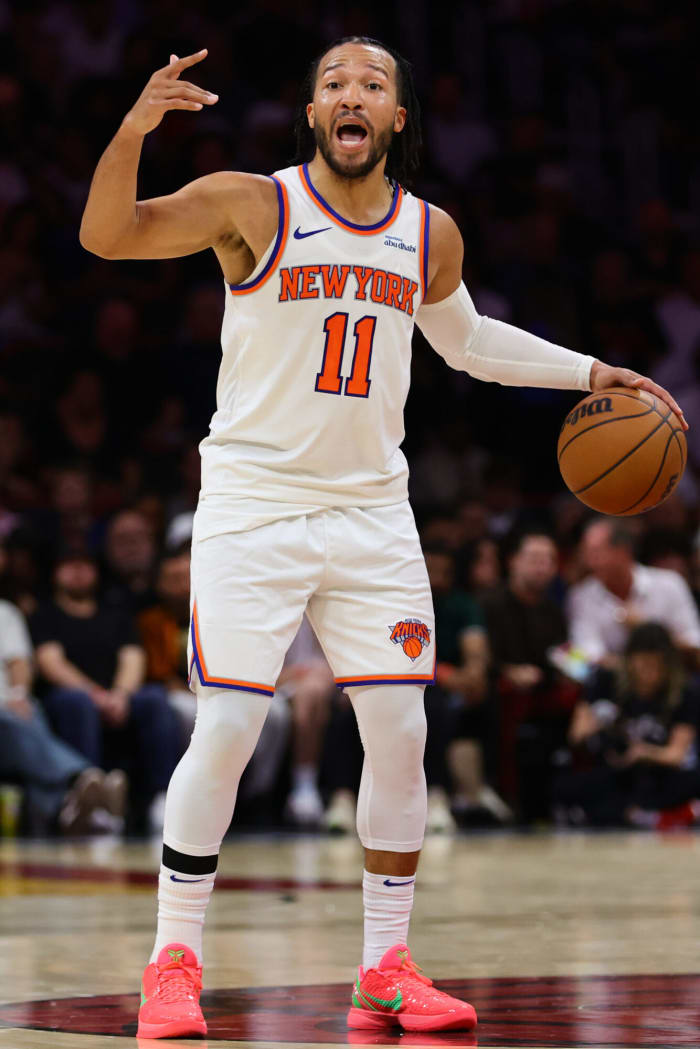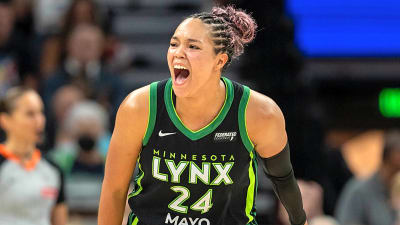
In the NBA, discussions about player contracts often highlighted the importance of value versus performance. point guard Jalen Brunson ‘s recent extension with the New York Knicks emerged as a standout example, showcasing how a well-structured deal can significantly benefit both player and team.
In the dynamic world of the NBA, player contracts often sparked intense debate among fans and analysts alike. As the 2025 season approached its midpoint, discussions centered around the value of various contracts, leading to the identification of both standout deals and those viewed as burdensome. Among these evaluations, Brunson’s contract with the New York Knicks emerged as a prime example of exceptional value, garnering attention for its favorable terms.

Brunson, who signed a four-year extension worth $181.9 million just two years into his tenure, consistently demonstrated his worth on the court. Playing a pivotal role in leading the Knicks to a solid playoff position, he averaged impressive stats, including 25.5 points and 7.5 assists per game. Analysts noted that his average annual salary ranked outside the top 40 in the league, making his contract one of the best value deals, especially when compared to other high-profile players.
On the other side of the spectrum, several contracts were criticized for their lack of value. Players like Zach LaVine and Bradley Beal found themselves on lists of the worst contracts due to underwhelming performances relative to their hefty salaries. LaVine’s contract, which tied him with some of the league’s top earners, raised eyebrows given his defensive struggles and injury history. Beal’s contract, laden with a no-trade clause, became a topic of contention as his output diminished significantly.
NBA Labels New York Knicks Star Jalen Brunson’s Contract as Best in the League

Brunson’s contract with New York is one other teams in the league would love to have. This is detailed more in Andy Bailey’s analysis for Bleacher Report.
Five years, $181.5 million (with a player option in 2028-29)
Jalen Brunson finished fifth in MVP voting last season. And when he signed his way-below-max extension with the New York Knicks this past summer, it instantly became the best value deal in the league (outside of the contracts for super-duperstars like Jokić, SGA, Giannis Antetokounmpo, etc.).
The 28-year-old point guard’s average annual salary ranks outside the top 40, but he’s once again playing well enough to receive All-NBA consideration.
The contrast between Brunson’s value and the burdensome contracts of others highlighted the complexities of salaries. Teams faced the challenge of balancing player performance with financial commitments, often leading to difficult decisions during trade seasons. Analysts underscored how Brunson’s selflessness in signing a discounted deal allowed the Knicks to maintain flexibility for future moves.

Brunson’s contract stood out as a beacon of value in the league, illustrating how strategic financial decisions could benefit both players and organizations. As the season unfolded, it became clear that recognizing the best and worst contracts was crucial for teams aiming to optimize their rosters while navigating the complexities of the salary cap. Brunson’s performance solidified his reputation as not just a valuable player but also a key asset for the Knicks’ future ambitions.

More must-reads:
- Kendrick Perkins wants former MVP to land with Bucks
- Celtics assistant provides update on Jayson Tatum
- The 'MLB playoffs all-time hit leaders' quiz
Customize Your Newsletter
 +
+
Get the latest news and rumors, customized to your favorite sports and teams. Emailed daily. Always free!








